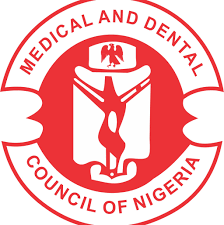The Nigerian Association of Resident Doctors (NARD) on Wednesday held a marathon National Executive Council (NEC) meeting to decide whether to proceed with a nationwide strike after the expiration of its ultimatum to the federal government.
The deliberations came against the backdrop of ongoing strikes by resident doctors in Abuja and Oyo State, worsening the strain on Nigeria’s already fragile health system. Resident doctors, who make up nearly 40 per cent of the nation’s medical workforce, are the backbone of teaching and specialist hospitals. Their absence often brings emergency rooms, operating theatres, and intensive care units to a standstill.
NARD’s 11,899 members are demanding the immediate payment of the 2025 Medical Residency Training Fund, settlement of five months’ salary arrears from the Consolidated Medical Salary Structure review, unpaid allowances, and recognition of postgraduate membership certificates. They also want welfare concerns in Kaduna resolved and urgent attention to the plight of doctors at LAUTECH Teaching Hospital, Ogbomoso.
If their demands are unmet, the impact could ripple across operating rooms, emergency wards, diagnostic labs, and primary healthcare centres nationwide, forcing patients into costly private hospitals.
Doctors Speak Out: “The System is Broken”
Medical practitioners interviewed by Daily Trust painted a grim picture of Nigeria’s health sector.
“Everyone knows why brain drain is worsening by the day,” said Dr. Bello Malik, a public health physician. “Young doctors are no longer waiting to finish their house jobs. Once they qualify, they take the first chance to leave for the UK or US. The system gives them no reason to stay.”
Dr. Kehinde Olayinka echoed similar frustrations, lamenting that outdated machines define many public hospitals. “Some CT and MRI machines have been in use for over 20 years. Spare parts no longer exist, yet technicians improvise. If there’s no drainage bottle, we use a urine bag. Nigerian doctors have been reduced to making something out of nothing,” he said.
He added that delayed promotions, unpaid arrears, and years of neglect have left health workers demoralised. “The system doesn’t need cosmetic fixes. It needs a full surgical overhaul,” Olayinka insisted.
“Doctors Will Keep Leaving” — Prof. Musa-Olomu
Professor Adewale Musa-Olomu, former Medical Director of the Federal Medical Centre, Abeokuta, warned that Nigeria risks losing its remaining doctors unless pay and conditions improve.
“At FMC, we once had approval to hire 100 doctors. We barely got 36, and at one point only four remained. Those who joined used the hospital as a stepping stone before leaving for Saudi Arabia, the UK, or the US,” he recalled.
He compared his monthly earnings of under N800,000 as a professor and hospital consultant to colleagues earning about N12 million in Saudi Arabia. “The disparity is staggering. One pediatric surgeon is now handling dozens of circumcisions alone. It’s unsustainable,” he warned.
Power outages have also crippled hospitals, forcing operations to be postponed. “Many hospitals operate in darkness because electricity bills running into millions are unpaid,” Musa-Olomu added.
A National Emergency
The Nigerian Academy of Medicine (NAMed) described the situation as both a health and education emergency. Outgoing president, Emeritus Professor Samuel Ohaegbulam, lamented chronic underfunding, obsolete diagnostic tools, and the inefficiency of health insurance schemes that cover barely 5% of Nigerians.
“Can we blame our doctors when they are offered S15,000 a month abroad while struggling to survive at home?” he asked.
Former Health Minister, Professor Isaac Adewole, acknowledged the crisis but noted that President Bola Tinubu has pledged to improve pay and strengthen the system to stem the exodus of health workers.
As the NEC meeting stretched into late hours, the fate of millions of patients hung in the balance. Whether the doctors choose dialogue or industrial action, the outcome could shape the future of Nigeria’s troubled health sector.




